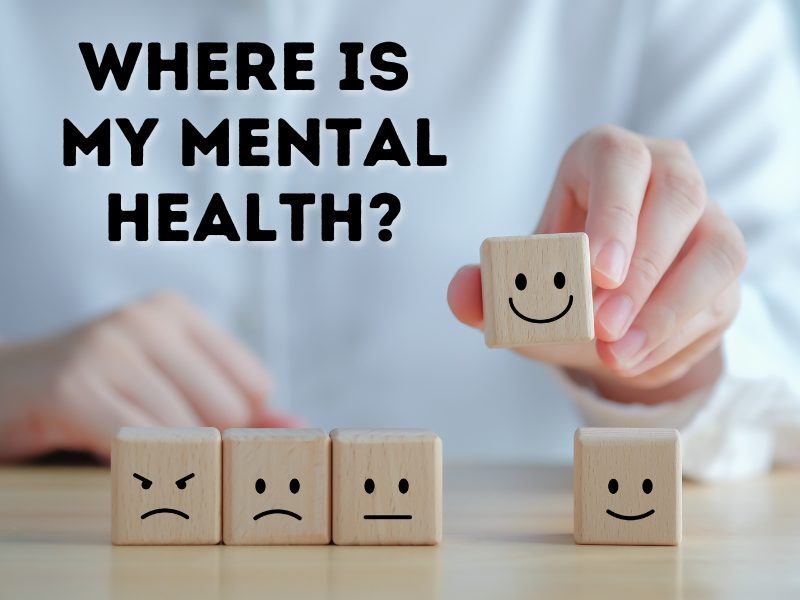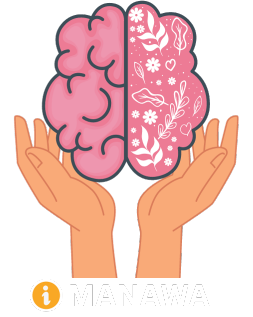
Introduction
In today’s fast-paced world, maintaining good mental health is paramount for overall well-being. Unfortunately, mental health issues are often overlooked or stigmatized, leading individuals to struggle silently. This article aims to shed light on the importance of mental health and provide practical strategies to nurture and improve it. Whether you’re feeling overwhelmed, stressed, or simply curious about your mental health, this guide is here to offer guidance and support.

Where is My Mental Health?
Understanding the current state of your mental health is crucial for taking appropriate action. By identifying potential issues and determining where your mental health stands, you can make informed decisions about seeking professional help or implementing self-care practices.

Reflect on the following aspects of your life to gain insight into your mental well-being:
Emotional Well-being
Your emotional well-being encompasses how you feel, cope with challenges, and experience various emotions. Pay attention to any lasting feelings of sadness, anger, or anxiety that might persist throughout your day. Emotional stability and resilience are indicators of good mental health.
Cognitive Functioning
Mental health greatly influences your cognitive abilities. Take note of your focus, decision-making skills, memory retention, and ability to stay mentally alert. If you’re struggling with concentration or experiencing frequent mental fog, it could indicate underlying mental health concerns.
Social Relationships
Your interactions with others can significantly impact your mental health. Evaluate the quality of your relationships, including friendships, romantic connections, and family dynamics. Are you experiencing fulfilling and meaningful connections, or do you feel isolated and disconnected from others?
Physical Well-being
There is a strong connection between physical and mental health. Assess your physical well-being, considering factors such as sleep quality, energy levels, appetite, and exercise routine. Poor physical health can contribute to mental health challenges and vice versa.
Work or Academic Performance
Your mental health can heavily influence your performance at work or in academics. Take note of any changes in your productivity, motivation, and ability to meet deadlines. Frequent burnout, reduced enthusiasm, or lack of interest may be indicators of mental health struggles.
Daily Functioning and Enjoyment
Evaluate your overall satisfaction with life and your ability to engage in activities you once found enjoyable. Reduced interest or difficulty finding pleasure in hobbies and everyday activities can be signs of poor mental health.
Assessing Mental Health Concerns
It’s essential to recognize when our mental health requires additional attention and support.

Here are some key signs that may indicate mental health concerns:
Excessive Worry and Anxiety
If you find yourself constantly worrying or experiencing intense anxiety that interferes with your daily life, it may be a sign of an underlying mental health issue.
Persistent Sadness or Lack of Motivation
Feelings of sadness, hopelessness, or a lack of motivation that last for an extended period might suggest depression or other mood disorders.
Changes in Sleep Patterns
Difficulty falling asleep, staying asleep, or experiencing excessive sleepiness during the day can be indicative of mental health challenges.
Substance Abuse or Dependence
Using drugs or alcohol as a coping mechanism can be a sign of underlying mental health issues. It’s important to seek help and address both substance abuse and mental health concerns simultaneously.
Effective Strategies for Nurturing Your Mental Health
- Seek Support: Reach out to trusted friends or family members who can provide a listening ear and support. Talking about your feelings can alleviate stress and help you gain perspective.
- Practice Self-Care: Prioritize self-care activities that promote relaxation and well-being. This may include engaging in hobbies, practicing mindfulness or meditation, exercising, or enjoying nature.
- Establish Healthy Boundaries: Set boundaries to protect your mental health and prioritize self-care. Learn to say no to excessive commitments and make time for activities that bring you joy.
- Maintain a Balanced Lifestyle: Adopt a healthy lifestyle that includes regular exercise, a balanced diet, and enough sleep. Physical well-being positively impacts mental health.
- Seek Professional Help: If you’re experiencing persistent mental health challenges, it’s important to seek help from a mental health professional. They can provide guidance, therapy, or medication if necessary.
- Connect with Others: Foster meaningful connections by participating in group activities, joining clubs or organizations aligned with your interests, or attending support groups. Social support can significantly improve mental well-being.
- Practice Stress Management: Develop healthy coping mechanisms to manage stress. This may include deep breathing exercises, journaling, practicing gratitude, or engaging in relaxation techniques.
- Limit Social Media and News Consumption: Constant exposure to negative news or comparing oneself to others on social media can negatively impact mental health. Set boundaries and prioritize activities that promote positivity.
- Maintain a Routine: Establishing a routine can provide a sense of stability and reduce anxiety. Stick to regular sleep patterns, mealtimes, and incorporate daily activities into your schedule.
- Challenge Negative Thoughts: Practice positive self-talk and challenge negative thoughts. Replace self-criticism with self-compassion and focus on your strengths and accomplishments.
- Engage in Creative Outlets: Explore your creative side by engaging in activities such as painting, writing, or playing an instrument. Creativity can be a source of joy and a way to express emotions.
- Volunteer and Help Others: Giving back to your community can boost self-esteem, provide a sense of purpose, and enhance mental well-being.
- Practice Gratitude: Cultivate an attitude of gratitude by regularly acknowledging and appreciating the positive aspects of your life. This can shift your focus from negativity to positivity.
- Engage in Physical Activity: Exercise releases endorphins, the “feel-good” hormones that can boost your mood and reduce symptoms of anxiety and depression.
- Get Sufficient Sleep: Prioritize quality sleep by practicing good sleep hygiene. Create a calming bedtime routine, limit screen time before bed, and ensure your sleep environment is comfortable.
- Challenge Yourself: Set realistic goals and challenge yourself to step out of your comfort zone. Accomplishing goals can boost self-esteem and provide a sense of fulfillment.
- Practice Mindfulness: Cultivate mindfulness by focusing on the present moment without judgment. This can reduce stress, increase self-awareness, and enhance overall well-being.
- Laugh and Find Humor: Surround yourself with laughter and humor. Watch funny movies, spend time with funny friends, or indulge in activities that make you laugh.
- Practice Relaxation Techniques: Experiment with relaxation techniques such as deep breathing, progressive muscle relaxation, or guided imagery. These techniques can promote relaxation and reduce stress.
- Educate Yourself: Learn about mental health by reading reliable sources, attending workshops or seminars, and understanding common mental health conditions. Knowledge is key to supporting your own well-being and others’.
- Practice Emotional Regulation: Develop strategies to identify and regulate your emotions effectively. This may involve journaling, talking to a therapist, or engaging in activities that promote emotional expression.
- Stay Connected with Nature: Spending time in nature has been shown to reduce stress, improve mood, and enhance overall well-being. Take walks, go hiking, or simply spend time in green spaces.
- Monitor Your Social and Media Influences: Be mindful of the people you surround yourself with and the media you consume. Surround yourself with positive influences that support your mental health journey.
- Celebrate Small Victories: Acknowledge and celebrate your achievements, no matter how small they may seem. Recognizing your progress boosts self-esteem and motivates continued growth.
- Embrace Imperfection: Accept that imperfections are a part of being human. Avoid striving for perfection and instead focus on self-acceptance and self-love.
FAQs (Frequently Asked Questions)
Q: How do I know if I need professional help for my mental health?
A: If you’re experiencing persistent or debilitating symptoms that significantly impact your daily functioning and well-being, it’s advisable to seek help from a mental health professional. They can provide a proper diagnosis and recommend appropriate treatment options.
Q: Can self-care alone improve mental health?
A: Self-care practices can certainly contribute to improving mental health, but it might not be sufficient for everyone. If your symptoms persist or worsen, seeking professional help is crucial for comprehensive care.
Q: What are some common misconceptions about mental health?
A: Some common misconceptions about mental health include believing that mental health issues are a personal choice, that they’re not as severe as physical health issues, or that individuals can “snap out of it” on their own. Mental health concerns are legitimate and require understanding, compassion, and appropriate support.
Q: How can I support a loved one struggling with mental health issues?
A: Show empathy and listen without judgment. Encourage them to seek professional help and provide support in finding appropriate resources. Educate yourself about their condition to better understand their experiences. Offer companionship and remind them of their strengths and accomplishments.
Conclusion
Your mental health is a vital aspect of your overall well-being. By being aware of where your mental health stands and implementing effective strategies for improvement, you can nurture and prioritize your mental well-being. Remember to seek professional help if needed and be kind to yourself throughout your mental health journey. Where is your mental health? It is within your power to nurture and improve it.
